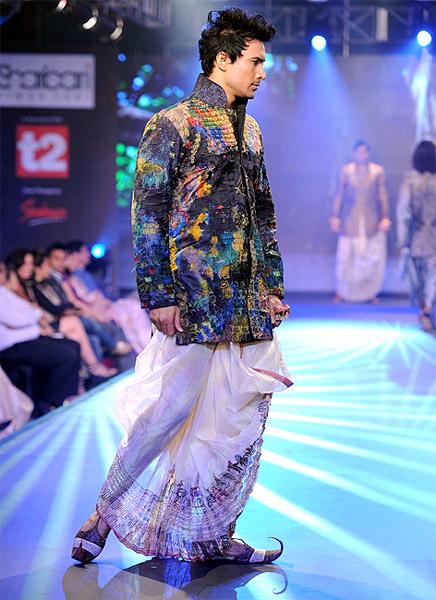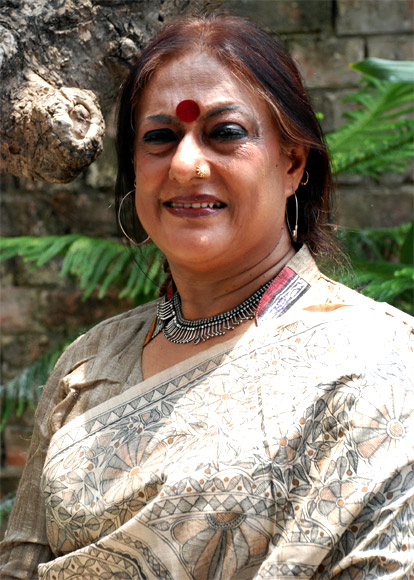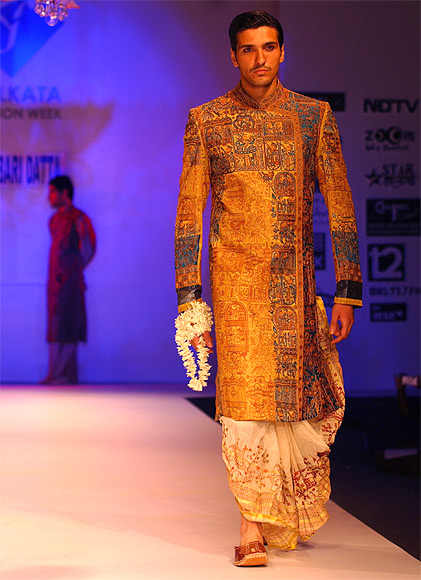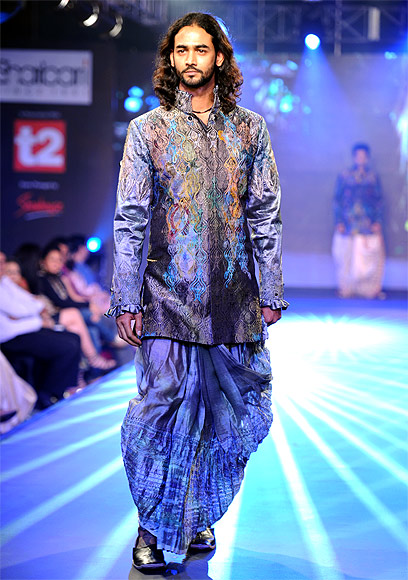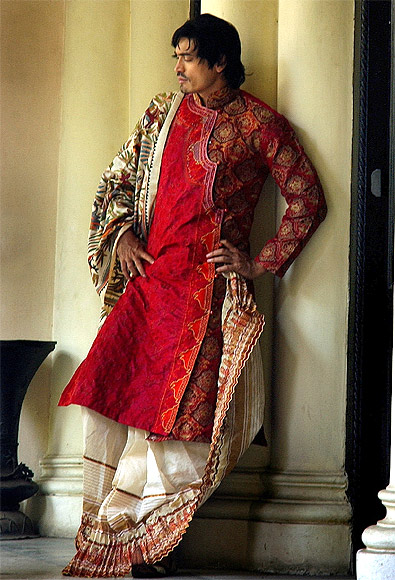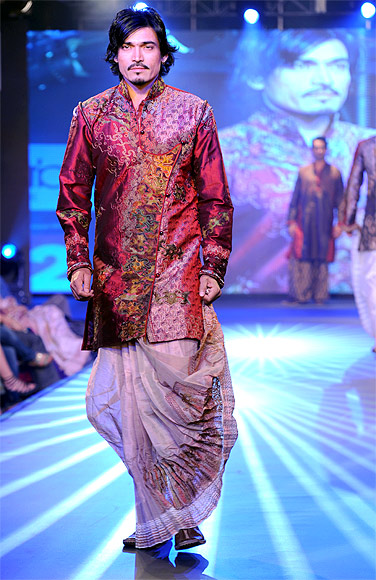 | « Back to article | Print this article |
What is Vijay Mallya and Rahul Dravid's Kolkata connection?
With clientele ranging from Vijay Mallya to Rahul Dravid, Kolkata-based designer Sharbari Datta is trying to revive the classic combination of dhoti and kurta.
In popular culture a well-draped white dhoti is synonymous with the bhadralok Bengali.
Be it Nikhilesh from Rabindranath Tagore’s Ghare Baire or Devdas Mukherjee of Sarat Chandra’s Devdas, the protagonist had always been depicted swirling the kocha or pleats flamboyantly.
With time, however, this stylish ethnic wear was discarded in favour of shirt and trousers for ease and comfort.
Click NEXT to read further. . .
What is Vijay Mallya and Rahul Dravid's Kolkata connection?
Young Bengali men considered the dhoti old fashioned, something to be worn by the elderly.
Kolkata-based designer Sharbari Datta is now attempting to lend a fresh lease of life to this much-ignored traditional attire.
There is considerable demand, not just within Kolkata but across the length and breadth of the country, for Datta’s designer dhotis.
Her clientele includes liquor baron Vijay Mallya, former union minister Praful Patel and former cricketers Ravi Shastri and Rahul Dravid.
Award winning quiz master and Trinamool Congress Member of Parliament Derek O’Brien is also extremely fond of Datta’s designs.
Click NEXT to read further. . .
What is Vijay Mallya and Rahul Dravid's Kolkata connection?
“When I did my first show on TV 19 years ago, the obvious thing would have been to run to Mumbai-based designers. Instead, we opted for Datta,” says O’Brien.
“The kantha embroidery and exquisite handwork became an instant hit and I had filmstars and TV hosts asking where I got my costume from.
“The lady has truly done Kolkata and Bengal proud.”
It is no wonder then that O’Brien opted for a Sharbari Datta dhoti-kurta for his Rajya Sabha swearing-in ceremony.
A self-taught fashion aficionado, Datta’s designer dhotis are priced anywhere between Rs 4,000 and Rs 7,000, depending upon the embroidery and client’s preference.
Click NEXT to read further. . .
What is Vijay Mallya and Rahul Dravid's Kolkata connection?
She has always been sensitive to the potential of the attire as a designer ethnic wear.
In 1991, when she organised a fashion show to display the trousseau collection of embroidered and coloured dhotis, she was surprised at the positive response that the embroidered ones received.
The coloured ones, however, remained untouched.
“Men were apprehensive about wearing a coloured dhoti, as they thought it would resemble a saree and make them look feminine,” says Datta.
It took five years and a successful fashion show with Milind Soman clad in a coloured dhoti and jacket walking down the ramp to make men shed their inhibitions about donning colours.
Click NEXT to read further. . .
What is Vijay Mallya and Rahul Dravid's Kolkata connection?
Today, Datta uses materials like raw silk, khadi and tussar in varied hues such as red, blue and purple, embellishing them with intricate embroidery.
“Dhoti is draped differently all across the country and even in various other parts of South Asia.
“Therefore, I use designs which would be relevant to Asia, rather than limiting them to Bengal,” she says.
Earlier, while some of her clients were willing to experiment with this revived ethnic look, others were inhibited by their lack of knowledge of the dhoti draping technique.
Click NEXT to read further. . .
What is Vijay Mallya and Rahul Dravid's Kolkata connection?
Datta came to their rescue by providing a step-by-step customer guide, with sketches, on how to drape a dhoti.
“This allowed me to innovate with ready-to-wear dhoti, which became a huge hit,” she says.
The classic combination of dhoti-kurta can now be seen in wardrobes of young men across Kolkata.
Be it weddings, oncerts or social gatherings, men are sporting this look.
Besides a simple cut kurta, Datta suggests that the dhoti be paired with the angrakha.
“In winters, a coloured dhoti will go very well with a bandhgala.
Complete the look by sporting a kolhapuri sandal or a pair of heavy leather sandals,” suggests Datta.
